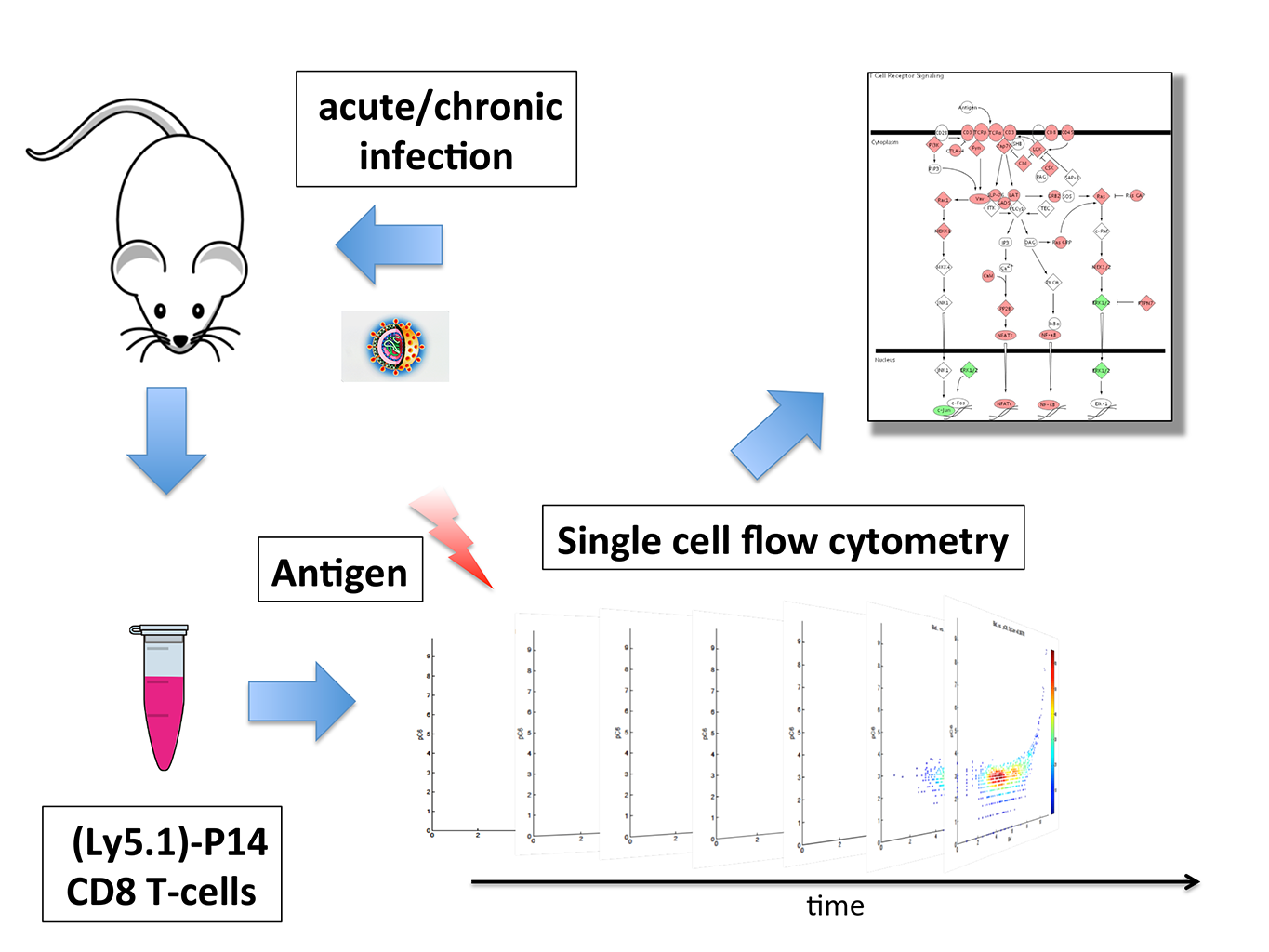Research Assistant/PhD student
A position is open for a research assistant/PhD student in the Computational Biology Group at the Institute of Molecular Systems Biology at ETH Zürich. The available position is offered in Claassen group that focuses on concepts from statistics, machine learning and mathematical optimization to describe biological systems from single cell data. We are looking for you as of April 15, 2015, or upon agreement, as a Research Assistant/PhD Student
The position will involve research aiming at deriving models for T cell exhaustion mechanisms during chronic viral infection. Persistent viral infections in humans like immunodeficiency virus, hepatitis B virus and hepatitis C virus in humans, together affect more than 2 billion people worldwide. These infections are often associated with impaired, dysfunctional virus-specific adaptive immune responses, a phenomenon referred to as T cell exhaustion. The efforts to elucidate the causes and mechanistic underpinnings of T cell exhaustion are still in its infancy and have so far been confined to a few carefully selected molecular targets. This project follows an integrated experimental and computational systems biology approach to augment our understanding of the mechanisms leading to T cell exhaustion in an ex vivo model system and will take place in the context of collaboration between the Claassen and the Oxenius labs at ETH Zurich. In a first step the candidate will carry out ex vivo perturbation experiments to build a multi-scale model of T cell function in the context of chronic infection and, in a second step, will take advantage of this model to derive interventions to revert the T cell exhaustion phenotype. We will study the murine Lymphocytic Choriomeningitis virus (LCMV) model system for which T cell exhaustion has been described for the first time and predominantly studied since then. The modeling strategy aims at mechanistically describing the signaling dynamics upon antigen and selected cytokine exposure in transgenic LCMV specific CD4 and CD8 T cells during acute and chronic infection. This project will comprise perturbation time series experiments with multiparametric flow cytometry readout, application and development of Bayesian model selection and parameter estimation techniques to derive mechanistic signaling reaction models for the population specific perturbation responses. These models will exemplify the differential signaling mechanisms that are present in exhausted T cell populations compared to non-exhausted ones. These insights will naturally lend themselves to design interventions that revert this phenotype and also will motivate novel hypotheses about analogous mechanisms and their reversal for chronic virus infections in humans.
The ideal candidate brings along a degree that demonstrates an interdisciplinary background in both life and formal sciences. While a background in experimental biology is highly recommended to carry out the envisioned single cell experiments in the mouse model, a solid background in mathematics, statistics and programming is required to carry out the subsequent data analysis. A fluent level of English is mandatory. We are looking for a highly motivated candidate with excellent communication skills that is capable of working in an interdisciplinary environment and can team up with scientists for experimental as well as computational analysis. The candidate should have a high degree of initiative. A competitive salary will be provided, which will be well matched relative to the cost of living in Zürich. We offer work in a highly stimulating environment with state-of-the-art infrastructure, providing the successful applicant with unique opportunities to develop a strong interdisciplinary portfolio in both experimental and computational biology.
For further information about the position, please contact Prof. Dr. Manfred Claassen by e-mail, , and visit our website http://www.imsb.ethz.ch/.
Applications with a motivation letter, full CV, diploma(s) and two contacts for further references should be sent online to: Prof. Dr. Manfred Claassen by e-mail,
